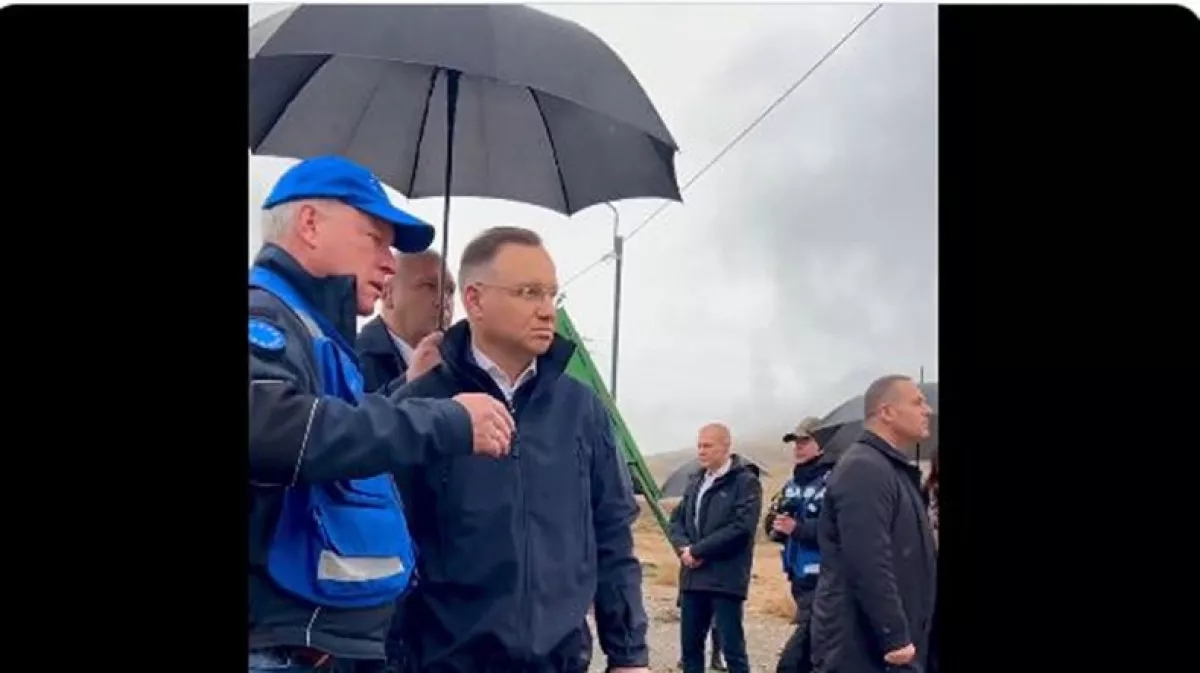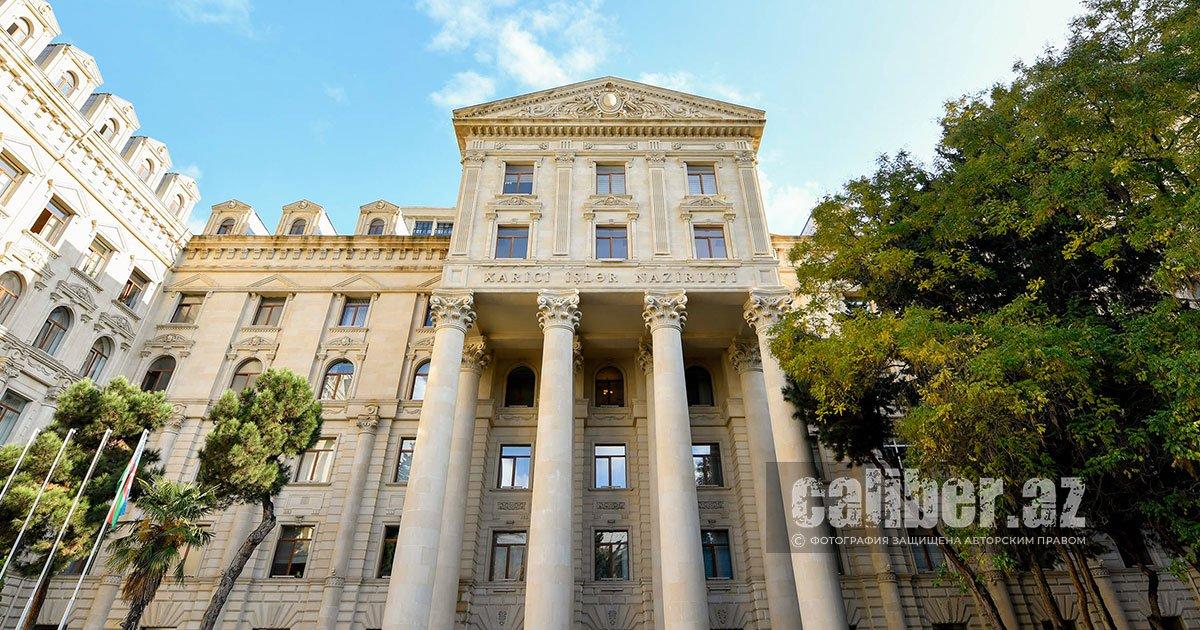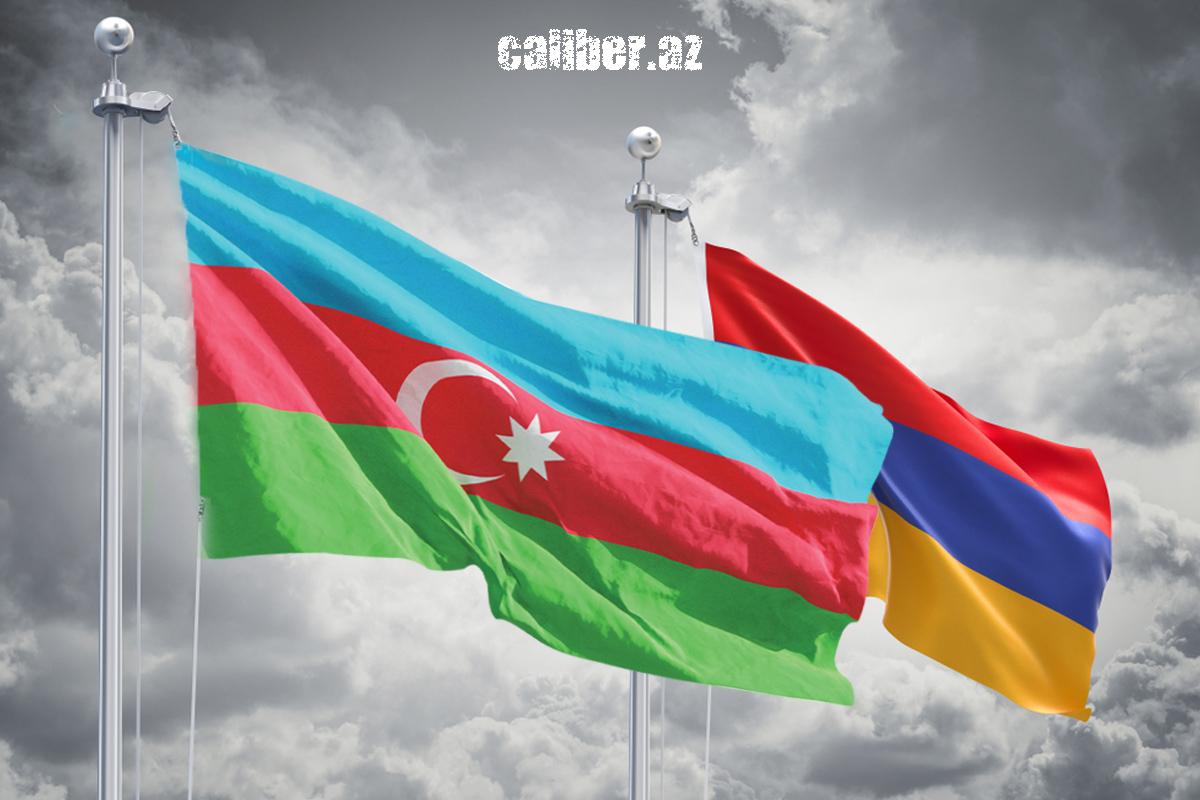Poland's president or the "binocular observer" of the EU spy mission? Andrzej Duda’s diplomatic provocation
"We deeply regret that President of the country which is officially a ‘strategic partner’ of Azerbaijan has participated in the unacceptable diplomatic ‘binocular show’ leading to the aggravation of relations between Azerbaijan and Poland. Despite the numerous messages sent from Azerbaijani officials to the Presidential Administration and Foreign Ministry of Poland, the Polish side did not refrain from this provocative step." These two sentences, in my opinion, are the most important in the statement of the Azerbaijani Ministry of Foreign Affairs, which responded to the provocative actions of Polish President Andrzej Duda.
While on a visit to Armenia, he decided to visit the village of Arazdeyan on the conditional Armenian-Azerbaijani border. There, he was met by representatives of the EU mission, with whom he walked back and forth and looked through binoculars towards the Azerbaijani border. What did he expect to see there? It is quite clear that there could have been nothing special to observe. The Azerbaijani border is guarded with the same level of security as any other country's border, including Poland's.

However, an important issue lies in the nature of the so-called "EU Observer Mission." It is important to recall that in October 2022, Azerbaijan agreed to the mission’s two-month stay in Armenia, which was to consist of a limited number of retired officers. However, without consulting Azerbaijan, the mission's duration was extended. Naturally, this move provoked justified discontent in Baku, particularly because the behaviour of the mission members was deemed unacceptable and beyond the normal standards of political conduct.
The President of Poland was, of course, well aware of all this. Not only because Azerbaijan's stance on the matter has always been expressed clearly and publicly, but also because, just a few days ago, Duda was in Baku, where he participated in COP29. He was honoured with a meeting by Azerbaijani President Ilham Aliyev. During their meeting, Duda was full of praise, emphasizing that, unlike many countries, the event in Baku is organized much better. "The two countries enjoy very good economic relations. The energy cooperation is a traditional part of our relations. I believe that these relations will be solidified in other areas of bilateral cooperation as well," he added.
However, as we can see, just a few days later, he personally decided to cast a serious doubt on the present and future of Azerbaijani-Polish relations. He, of course, knew what Azerbaijan's reaction would be to his decision to play the role of a "binocular observer." The statement from the Ministry of Foreign Affairs clearly indicates that Duda was repeatedly informed about this matter. Yet, he did what he did.

Why? There are several possible explanations for the actions of the Polish president. Let’s start with the simplest one: he is simply a poorly mannered individual. As is well known, Duda refused to take part in the joint photo at the opening of COP29, citing the presence of Belarusian President Alexander Lukashenko as his reason. However, Duda was well aware that Lukashenko would attend the event in Baku. Thus, the Polish president saw fit to openly disrespect Azerbaijan, the host country of COP29. This should not have happened. If you are invited as a guest and accept the invitation, seeing someone you don’t have the best relations with among the attendees, good manners dictate that you should still show respect to the host. In simpler terms, while relations between Poland and Belarus may be tense, openly displaying this at an event that Duda himself praised shows a lack of basic courtesy. Therefore, what we have here is not only an example of bad manners but also a demonstration of hypocrisy. Perhaps, to rise to the top of Polish politics, such traits are seen as necessary—so to speak, part of the toolkit. But in the East, respect for those who warmly welcome guests is valued just as much as hospitality itself.
However, we must also recognize another factor. Poland clearly harbours ambitions far beyond its actual geopolitical weight. This is evident from Duda's visit to Yerevan, right after his trip to Baku, which signals an attempt by the Polish government to position itself as a mediator in the Azerbaijani-Armenian reconciliation process. During his visit to Yerevan, he stated that peace in the South Caucasus is also important for Europe. In doing so, he tried to present himself not only as the president of Poland but as a representative of all of Europe. It’s worth noting that this is the same Europe that has failed to contribute to a fair resolution of the Azerbaijani-Armenian conflict within the framework of international law and under UN Security Council resolutions.
Furthermore, it is important to highlight that there is no longer any need for mediation by any party. Azerbaijan has fully restored its sovereignty and territorial integrity, and Armenia has recognized the borders of Azerbaijan. Today, the process of border delimitation and demarcation is underway, taking place in a bilateral format. Any outside interference, especially by Poland, is completely unnecessary.

This is partly because we have already seen the true value of Poland's mediation in the Russia-Ukraine conflict. On May 22, 2022, Duda visited Kyiv, where he spoke in the Verkhovna Rada, emphasizing the good-neighborly and friendly relations between the two countries. He also assured that he would do everything in his power to help Ukraine join the EU in the near future. However, over time, we saw Polish farmers block the border with Ukraine, an action that could only have occurred with approval from the "top." Additionally, the war in Ukraine is ongoing, and the Ukrainian armed forces require vast amounts of ammunition. Nearly twenty countries joined the Czech initiative to procure ammunition for Ukraine, but not all of them provided funding. As reported by Gazeta Wyborcza, 18 countries joined the search for ammunition outside the EU. Yet Poland, which publicly supported the initiative, according to media reports, did not contribute a single zloty (Poland's national currency). Thus, Poland may be the only country not to provide funds within this project. This serves as another glaring example of hypocrisy from the official Warsaw government and President Andrzej Duda personally.
Poland’s imperial ambitions are hard to ignore, especially with growing claims to Lviv and other Ukrainian cities being voiced at various levels. Additionally, Poland is acting as a proxy for the United States, having been entrusted with overseeing the Baltic States. It is also crucial to acknowledge the continued influence of the "Solidarity" movement in Poland today. This legacy explains why Polish politicians across the political spectrum have consistently supported "velvet revolutions" in Ukraine, Georgia, and other countries. Notably, Andrzej Duda was involved in the activities of the "Solidarity" Civil Committee in 1989 and played a role in the election campaigns of presidential candidate Lech Wałęsa in both 1990 and 1995.
Many factors suggest that the provocation by the President of Poland on the conditional Armenian-Azerbaijani border was not unexpected. With this being his second presidential term and no possibility of a third, he is clearly looking ahead. The actions taken now may help position him for a future role as a European official or a member of the European Parliament. This is the same European Parliament where anti-Azerbaijani resolutions are regularly adopted, and Polish representatives have consistently voted in favour, despite the strategic nature of relations between Poland and Azerbaijan.








